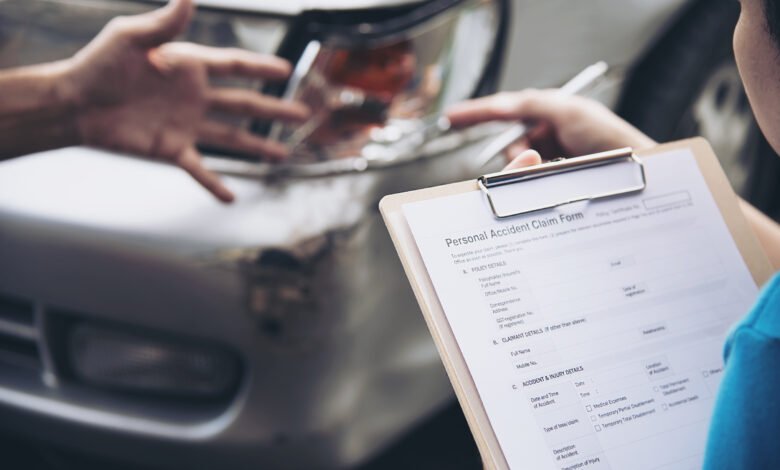
When it comes to owning a car, car insurance is one of those necessary evils. You might not like paying for it, but it’s a must-have. Whether you’re a seasoned driver or just got your license, understanding car insurance can save you a ton of money and hassle in the long run. But with all the jargon, different policies, and add-ons, car insurance can feel like a maze. Let’s break it down, so you know exactly what you’re getting into.
What Is Car Insurance and Why Do You Need It?
First things first—what exactly is car insurance? In simple terms, car insurance is a contract between you and an insurance company. You pay them a premium, and in return, they agree to cover your financial losses if you’re involved in a car accident, your car gets stolen, or it suffers some other kind of damage. Without car insurance, you’d be on the hook for all the costs yourself, which could be financially devastating.
But why is car insurance important? For starters, it’s legally required in most places. Driving without it can lead to hefty fines, losing your license, or even jail time. Beyond that, car insurance gives you peace of mind. Life is unpredictable, and accidents happen. Having car insurance ensures that you’re not left in a financial mess if something goes wrong.
Types of Car Insurance Coverage
Now that you know why you need car insurance, let’s talk about the different types of coverage you can get. Understanding the options will help you choose the best policy for your needs.
1. Liability Insurance
This is the most basic type of car insurance and is usually the minimum required by law. Liability insurance covers the costs if you’re at fault in an accident and cause injury to someone else or damage their property. However, it won’t cover your own injuries or damages to your vehicle.
2. Collision Insurance
This type of car insurance covers damage to your own car in the event of an accident, regardless of who’s at fault. If you crash into another car or hit a tree, collision insurance helps cover the repair or replacement costs of your vehicle.
3. Comprehensive Insurance
Comprehensive car insurance is for those unpredictable moments that don’t involve a collision, like theft, vandalism, or natural disasters. If your car gets stolen, or a tree falls on it during a storm, comprehensive coverage has you covered.
4. Personal Injury Protection (PIP)
Also known as no-fault insurance, PIP covers medical expenses and lost wages for you and your passengers, no matter who’s at fault in an accident. It’s a crucial part of car insurance if you want to make sure you and your loved ones are financially protected in case of an accident.
5. Uninsured/Underinsured Motorist Coverage
Unfortunately, not everyone on the road has car insurance. If you’re in an accident caused by an uninsured or underinsured driver, this type of coverage kicks in to cover your costs. It’s a small but important part of a solid car insurance policy.
How to Choose the Right Car Insurance Policy
Picking the right car insurance policy can be a bit overwhelming, but it doesn’t have to be. Here are some tips to help you make the best choice.
1. Assess Your Needs
Start by thinking about your driving habits, the type of car you have, and your financial situation. If you have a new, expensive car, you might want comprehensive and collision coverage. If your car is older and less valuable, you might be able to skip those and save some money.
2. Compare Quotes
Don’t just go with the first car insurance company you find. Get quotes from several providers and compare them. Look at what each policy covers, the premiums, deductibles, and any additional benefits. The cheapest option might not always be the best one.
3. Check the Company’s Reputation
Not all car insurance companies are created equal. Do some research to find out if the company you’re considering has a good reputation. Check online reviews, ask friends and family for recommendations, and look at the company’s financial stability.
4. Look for Discounts
Many car insurance companies offer discounts that can save you money. For example, you might get a discount if you have a good driving record, bundle your car insurance with other types of insurance, or install anti-theft devices in your car. Ask about any available discounts when shopping around.
Common Car Insurance Myths Debunked
When it comes to car insurance, there’s no shortage of myths and misconceptions. Let’s debunk some of the most common ones so you can make informed decisions.
Myth 1: Red Cars Are More Expensive to Insure
One of the oldest car insurance myths is that red cars are more expensive to insure. The truth is, the color of your car doesn’t affect your premium. Car insurance companies are more concerned with the make, model, age, and safety features of your vehicle than its color.
Myth 2: Your Credit Score Doesn’t Affect Your Premium
In reality, your credit score can impact your car insurance premium. Insurance companies often use your credit score to assess your risk level. A higher credit score can lead to lower premiums, while a lower score might result in higher costs.
**Myth 3: Older Drivers Always Pay More for Car Insurance
While age is a factor in determining car insurance premiums, it’s not as straightforward as you might think. Younger drivers, especially teens, tend to pay the highest premiums because they’re considered high-risk. However, drivers in their 50s and 60s often enjoy lower rates because they’re seen as more experienced and less likely to be involved in accidents.
Conclusion: The Importance of Making Informed Car Insurance Choices
At the end of the day, car insurance is all about protecting yourself, your passengers, and your vehicle. While it might feel like just another bill to pay, having the right car insurance can make a huge difference when life throws you a curveball. By understanding the basics, knowing your options, and making informed choices, you can get the coverage you need without breaking the bank.
So, the next time you’re shopping for car insurance, remember to assess your needs, compare quotes, and don’t fall for the myths. With the right car insurance policy in place, you can hit the road with confidence, knowing you’re well-protected against whatever comes your way.
